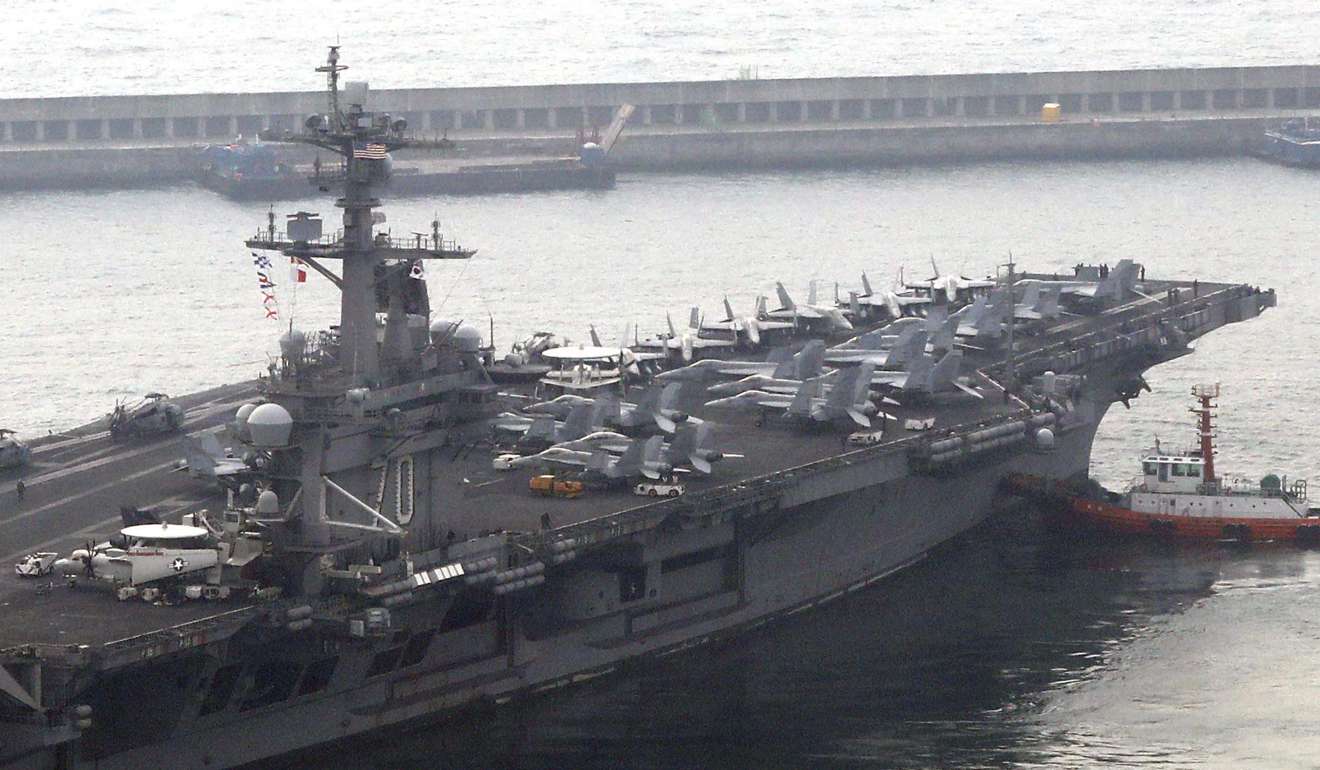
China nuclear envoy in talks on North Korea threat
Wu Dawei, China’s Special Representative for Korean Peninsula Affairs, will meet with his South Korean counterpart to discuss the nuclear issue
China’s top nuclear envoy arrived in Seoul Monday for talks on the North Korean threat, as a US naval strike group headed to the region in a show of force.
President Donald Trump, fresh from a missile strike on Syria that was widely interpreted as putting Pyongyang on warning, has asked to be provided with a range of options for eliminating the North’s nuclear capabilities.
“Presidents before and President Trump agreed that that is unacceptable, that what must happen is the denuclearisation of the peninsula,” US National Security Adviser H.R. McMaster told Fox News on Sunday.
Speculation of an imminent nuclear test is brewing as the North marks major anniversaries this month including the 105th birthday of its founding leader -- usually celebrated with a demonstration of military might.
Wu Dawei, China’s Special Representative for Korean Peninsula Affairs, will meet with his South Korean counterpart later on Monday to discuss the nuclear issue, Seoul’s foreign ministry said.
The South’s deployment of a controversial US missile defence system loathed by Beijing will also be high on Wu’s agenda, Yonhap news agency said.
The talks come shortly after Trump hosted Chinese leader Xi Jinping for a summit at which he pressed Pyongyang’s key ally to do more to curb the North’s nuclear ambitions.
“(We) are prepared to chart our own course if this is something China is just unable to coordinate with us,” US Secretary of State Rex Tillerson said after the summit.
The US Navy strike group Carl Vinson cancelled a planned trip to Australia, heading toward the Korean peninsula instead, in a move that will raise tensions in the region.

Tillerson said Sunday on “This Week” program that the U.S. wasn’t interested in “regime change” in North Korea.
Kim Jong Un’s regime “has made significant advancements in delivery systems, and that is what concerns us the most,” Tillerson said. When asked what message North Korea should take from the U.S. strike on Syria last week, he said: “If you become a threat to others, at some point a response is likely to be undertaken.”
U.S. National Security Adviser H.R. McMaster, appearing on “Fox News Sunday,” said the diversion of the vessels toward the Korean Peninsula was a “prudent” move. “North Korea has been engaged in a pattern of provocative behavior,” McMaster said. “This is a rogue regime that is now a nuclear-capable regime.”
McMaster said Trump and Chinese President Xi Jinping agreed at their summit in Florida that “what must happen is the de-nuclearization of the Korean peninsula.” Trump “has asked us to be prepared to give him a full range of options to remove that threat,” McMaster said.
A South Korean defense ministry spokesman said on Monday that the decision to divert the Carl Vinson will send a signal to North Korea that the U.S. and its allies are fully prepared to defend against any provocation.
Seoul and Washington are also conducting joint military drills, an annual exercise which is seen by the North as a practice for war.
Pyongyang is on a quest to develop a long-range missile capable of hitting the US mainland with a nuclear warhead, and has so far staged five nuclear tests, two of them last year.
Satellite imagery analysis suggests it could be preparing for a sixth, with US intelligence officials warning that Pyongyang could be less than two years away from its goal of striking the continental United States.
Additional reporting by Bloomberg

.png?itok=arIb17P0)
